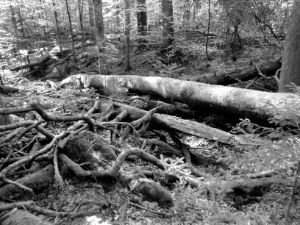Opera | Berlin-based Orchestras
Deutsches Symphonie-Orchester Berlin
Robin Ticciati, conductor
Start of the season and finale of the Musikfest Berlin

National Park Bayerischer Wald Photo: Thomas Michler © National Park Bayerischer Wald
With this concertante performance of Dvořák’s “Rusalka” – an opera of distinctive figures of sound and themes, vivid harmonics and masterful orchestration – the 2019 Musikfest Berlin will enter its finale.
Musikfest Berlin began with a grand opera in a semi-staged performance. And it will end with a grand opera in a concertante presentation. Our exploration of the Paris of Hector Berlioz will be complemented by a glance towards the Prague of Antonín Dvořák. As on 1 September (“Die Frau ohne Schatten”), we will once more travel beyond Wagner – in an aesthetic location not easily found by composers of the late 19th century. Dvořák, who had recently returned from a longer mission to America, composed four Symphonic Poems on his way towards his penultimate opera, experiencing a time-lapse version of a development similar to that of his younger German colleague Richard Strauss. Like in his Symphonic Poems, he chose a fairy-tale narrative that has its own Czech tradition, but is also told in other languages: the story of the mermaid who falls in love and yearns for a human life, only to be cast out of her new society by her master’s infidelity with no hope of returning to her old life. Her soul cannot find peace; it is condemned to restless wanderings. As well as the technique of characterising basic motifs – an tremendous stylisation of Wagner’s principle of the leitmotif – Dvořák also expanded the art of generating succinct sound and topical figures from the melos. His vivid harmonies and masterful orchestration, which had gained in power and transparency throughout the composition of nine symphonies and countless tone poems, demonstrated the composer’s journey towards new qualities of musical expression and form. Some critics hold that Dvořák took the scenic route through forests and along the rivers rather than the expressway towards modernity, which allowed him to make many discoveries lost his more speedy colleagues – and perhaps they are right.
Concert Programme
Antonín Dvořák (1841 – 1904)
Rusalka op. 114
Opera in 3 acts (1900)
Concert performance
Cast
Sally Matthews – soprano (Rusalka)
Klaus Florian Vogt – tenor (Prince)
Alexander Roslavets – bass (Water Goblin)
Patricia Bardon – mezzo soprano (Witch
Zoya Tsererina – soprano (The Foreign Princess)
Noluvuyiso Mpofu – soprano (1st Wood Sprite)
Anna Pennisi – mezzo soprano (2nd Wood Sprite)
Alyona Abramova – mezzo soprano (3rd Wood Sprite)
Colin Judson – tenor (Gamekeeper)
Rundfunkchor Berlin
Michael Alber – vocal coach
Deutsches Symphonie-Orchester Berlin
Robin Ticciati – conductor
A Deutsches Symphonie-Orchester Berlin event in collaboration with Rundfunkchor Berlin, in cooperation with Berliner Festspiele / Musikfest Berlin